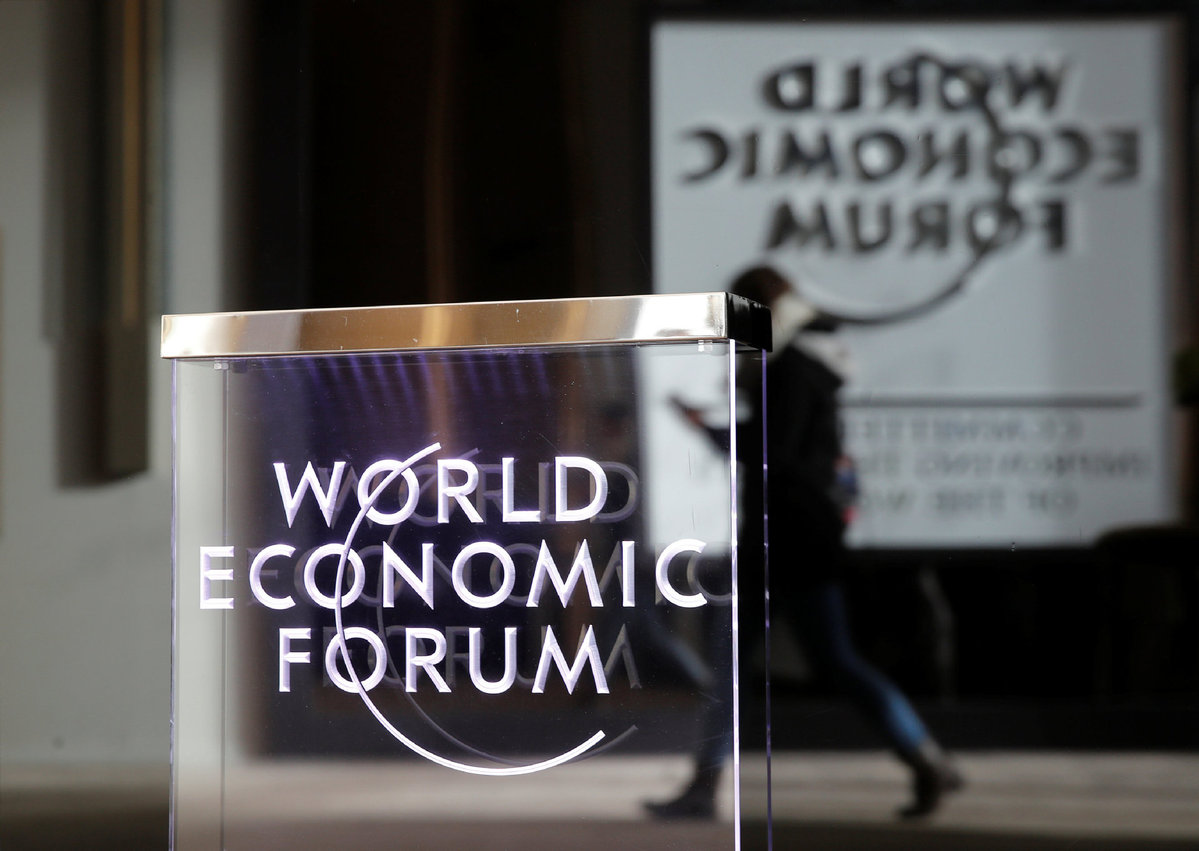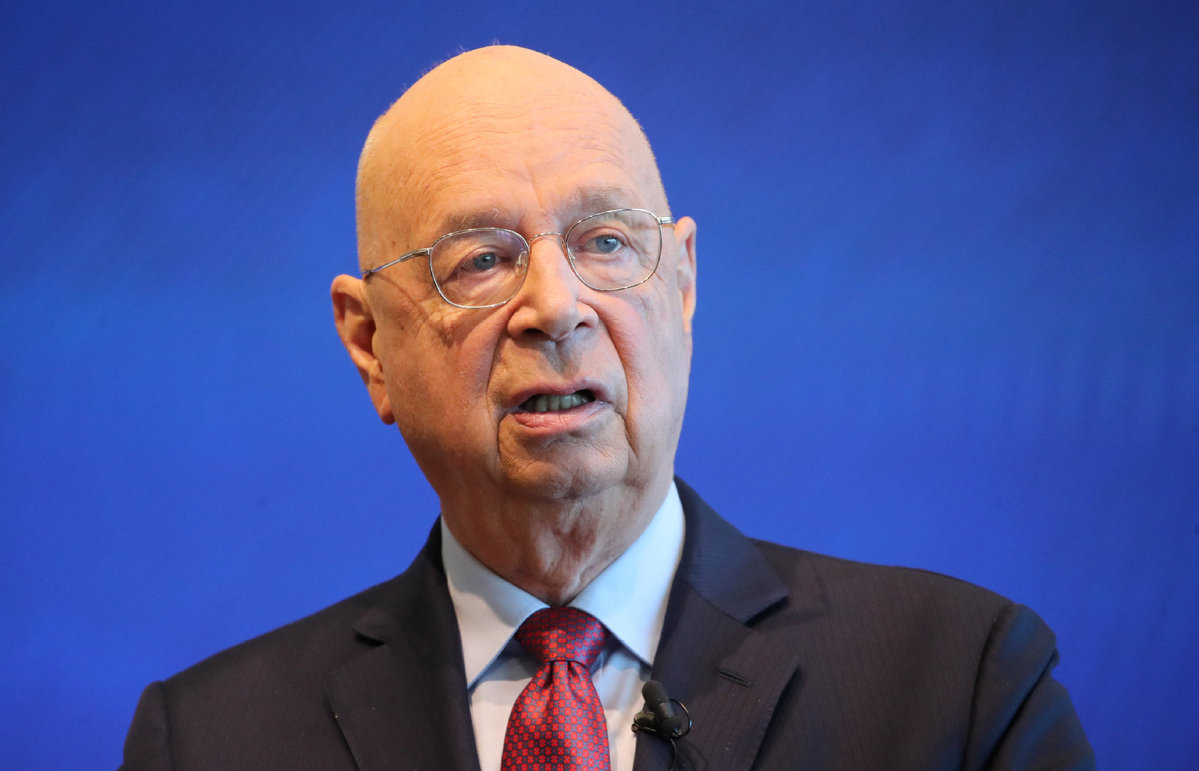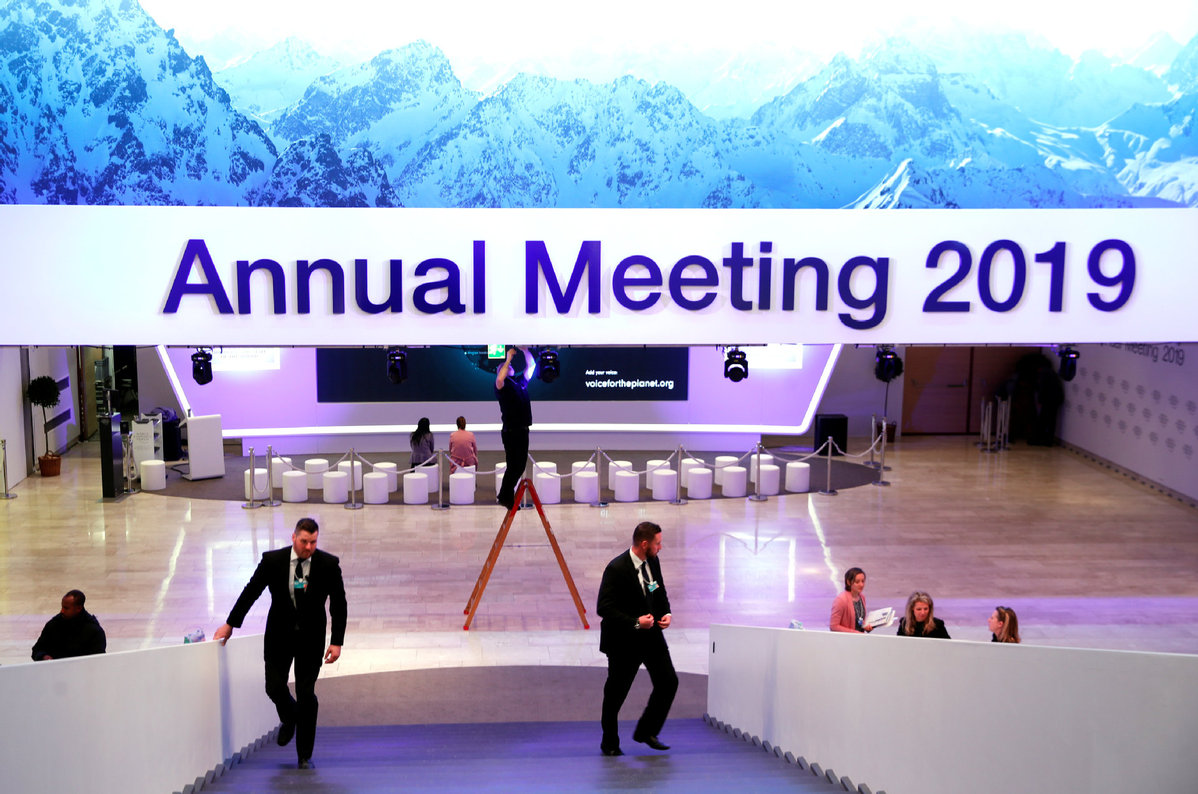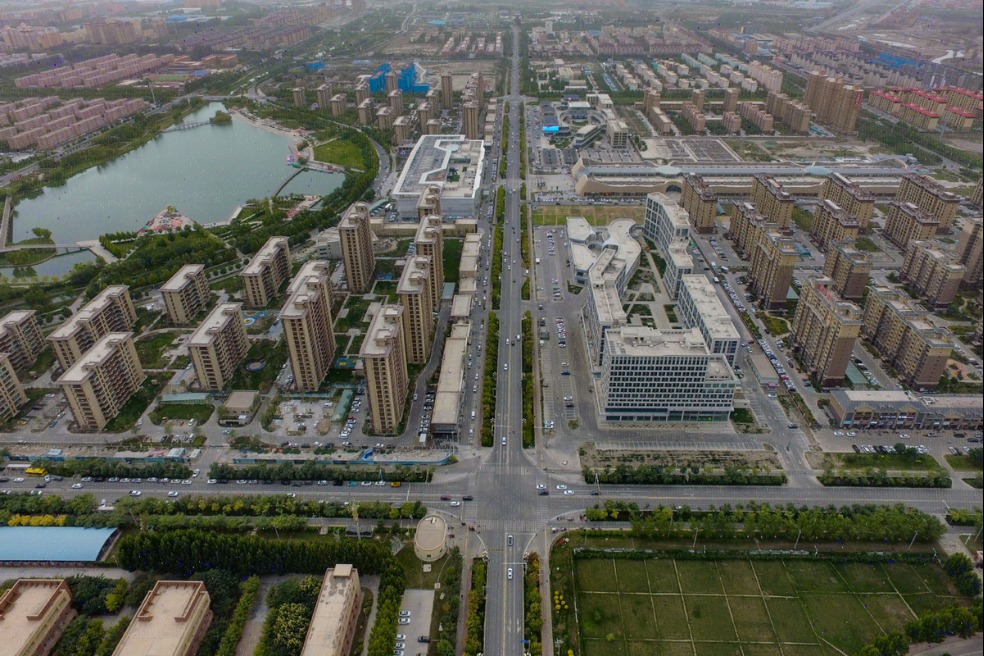全球化4.0:達沃斯世界經濟論壇年會議題前瞻
中國日報網 2019-01-21 14:41

世界經濟論壇2019年年會將于1月22日至25日在瑞士達沃斯舉行,預計將有來自全球110多個國家超過三千名政、商、學界及公民社會、文化藝術和媒體界的代表及專家和青年領袖出席。

本屆年會主題為“全球化4.0:打造第四次工業革命時代的全球架構(Globalization 4.0: Shaping a Global Architecture in the Age of the Fourth Industrial Revolution)”。
什么是“全球化4.0”?
世界經濟論壇創始人兼執行主席施瓦布1月16日發表在美國《外交》雜志的一篇文章給出了詳細的解釋:
The Fourth Industrial Revolution is best described by its leading technologies: artificial intelligence, autonomous vehicles, and the Internet of Things. These are technologies that will affect many industries in the decades to come and accord unprecedented importance to the digital world.
第四次工業革命的最佳表述就是這些領先技術:人工智能、無人駕駛汽車,以及物聯網。這些技術將在未來幾十年影響多個行業,對數字世界有至關重要的影響。
In this world, globalization won’t disappear; it will deepen. If in the past global integration grew as trade barriers came down, it will now rely on the connectivity of national digital and virtual systems and the related flow of ideas and services. This is the core of Globalization 4.0.
當今世界,全球化不會消失,而是不斷深入。如果說以往的全球融合是因為貿易壁壘的消失而發展,那么如今的全球化發展則有賴于國家間數字和虛擬系統的互聯互通以及相關理念和服務的流通。這是全球化4.0的核心。

施瓦布指出,
This fourth wave of globalization needs to be human-centered, inclusive and sustainable.
全球化4.0必須是以人為本、包容和可持續的。
他還表示,在應對全球化4.0的挑戰時,我們要遵循三個重要原則:
First, the dialogues that take place to shape Globalization 4.0 must involve all the relevant global players.
第一,構建全球化4.0的對話必須讓全球有關各方參與。
Second, the preservation of social and national cohesion should be placed front and center.
第二,維護社會及民族凝聚力應該放在首要地位。
Third, coordination—achieving shared objectives—will yield more successes than cooperation—acting out a common strategy.
第三,協同(達成共同目標)會比合作(執行同一戰略)取得更多成果。
本屆達沃斯年會將以“全球化4.0”為主題舉行一系列“全球對話”,重點關注以下相互關聯的領域:

“地緣政治和觀念多元化的世界”全球對話(a global dialogue on the geopolitics and a “multiconceptual” world):了解國際關系中正在發生的重大變化,并就如何推動未來合作進行坦誠和建設性的討論;同時舉行“和平與和解”全球對話(a global dialogue on peace and reconciliation):推動多方利益相關者為解決世界主要薄弱環節的外交努力提供大規模支持,特別是正值戰略地緣政治轉變有可能導致權力真空和/或單邊主義不斷抬頭之際。
“經濟的未來”全球對話(a global dialogue on the future of the economy):回顧經濟和社會決策原則(review principles for economic and social decision-making),這些原則需要重新制定,以更好地反映第四次工業革命中固有的結構性變化;同時舉行“金融和貨幣體系”全球對話(a global dialogue on financial and monetary systems):利用加密貨幣和區塊鏈等新技術共同塑造貨幣和金融體系(jointly shape our monetary and financial systems by leveraging new technologies, such as cryptocurrencies and blockchain),并且使這些體系更具彈性,從而實現可持續增長和長期社會福祉。
“工業系統”全球對話(a global dialogue on industry systems):預測第四次工業革命如何提供機會,大幅改善衛生、能源、通信、交通等領域的服務;同時舉行“技術政策”全球對話(a global dialogue on technology policy):就人工智能和基因編輯等創新和新興技術確定原則,并確保這些技術以必要的道德原則和基于價值觀的框架為依托。
“網絡安全”全球對話(a global dialogue on cybersecurity):確保第四次工業革命的數字創新和技術支柱安全可靠;同時舉行“風險復原力”全球對話(a global dialogue on risk resilience):促進系統性思考,從根本上改善我們對關鍵環境系統(氣候、海洋和生物圈)的綜合管理,這些系統是我們的社會和經濟賴以生存的基礎。
“人力資本”全球對話(a global dialogue on human capital):工作的概念正在發生巨變,需要對其進行重新審視,還要反思工作的未來和人力資本的相關性;同時舉行“新社會愿景”全球對話(a global dialogue on a new societal narrative):塑造新的社會愿景,從迷戀消費和物質主義轉變為關注理想和人文主義。
“制度改革”全球對話(a global dialogue on institutional reform):反思上世紀出現的全球制度框架,并對其進行調整,確保適應21世紀今后幾十年的新政治、經濟和社會環境;同時舉行“經濟合作”全球對話(a global dialogue on economic cooperation):建立一個新的規則和制度框架,整合全球經濟合作的方方面面,包括知識產權、人員流動、競爭政策、數據保護、匯率、財政政策、國有企業和國家安全。
在本屆年會350多場論壇對話環節中,“中國主題”頗為顯眼。其中包括:
22日舉行的“推進‘一帶一路’倡議:展望中國的萬億美元愿景(Advancing the Belt and Road Initiative: China’s Trillion-Dollar Vision)”;
24日的“中國經濟展望(China Economic Outlook)”和“全球化4.0:中國如何塑造全球商業的未來(Globalization 4.0: China's Role in the Future of Global Commerce)”等。
中國國家副主席王岐山將出席本屆達沃斯世界經濟論壇年會并應邀發表致辭。
參考來源:達沃斯官網
(中國日報網英語點津 Helen)

















 英語點津微信
英語點津微信 雙語小程序
雙語小程序